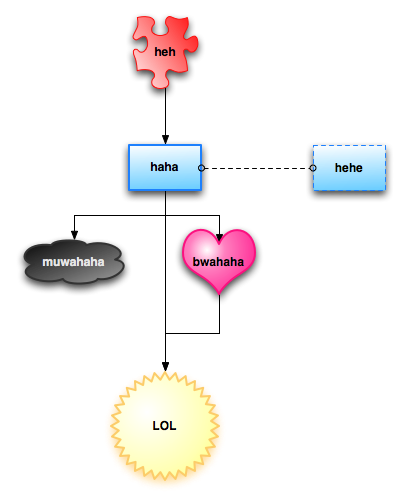the Tao of LOL
¶ by Rob FrieselA friend asked me today: “On IM, when you type ‘haha’, does that imply that you actually laughed?”
I answered immediately: no.
The “haha” and “hehe” strings imply that you got the joke, that you’re reading and comprehending the humor, that you believe the preceding statement is funny – but it doesn’t necessarily mean that you laughed.
Leading to the follow-up: “What about ‘LOL’?”
Which, naturally, means that you did in fact laugh out loud. “LOL” is a step up from a “hehe” or a “haha”. It ought to be a rare and coveted event. If you can eek out an LOL from someone, you’ve done well.
This led to a couple of brief asides about the hierarchy of online laughter:

Observe: First the “heh” is a modicum of laughter; the online equivalent of the wry smile or the eye-roll at some lame pun. “Heh” says: I get it but you’ll need to do better. Then there are the siblings “haha” and “hehe”. Both are a bit ambiguous since either could be a polite gesture (I like you and that was funny but not LOL-worthy) or an indication of genuine amusement. Neither should be taken as offensive but neither should be interpreted as full-on actual laughter. Next are the bastard cousins “muwahaha” and “bwahaha”. “Muwahaha” is the evil one – that’s reserved for when you’re laughing at someone’s expense. “Bwahaha” is a more uncontrollable laughter – the online equivalent of shooting milk out your nose. But nothing can compare to the rate and coveted “LOL”: laughing-out-loud is when you have arrived and caused someone to physically make an ass out of him or herself by laughing at your disembodied wit.
Everything else is just derivative.
Leave a Reply